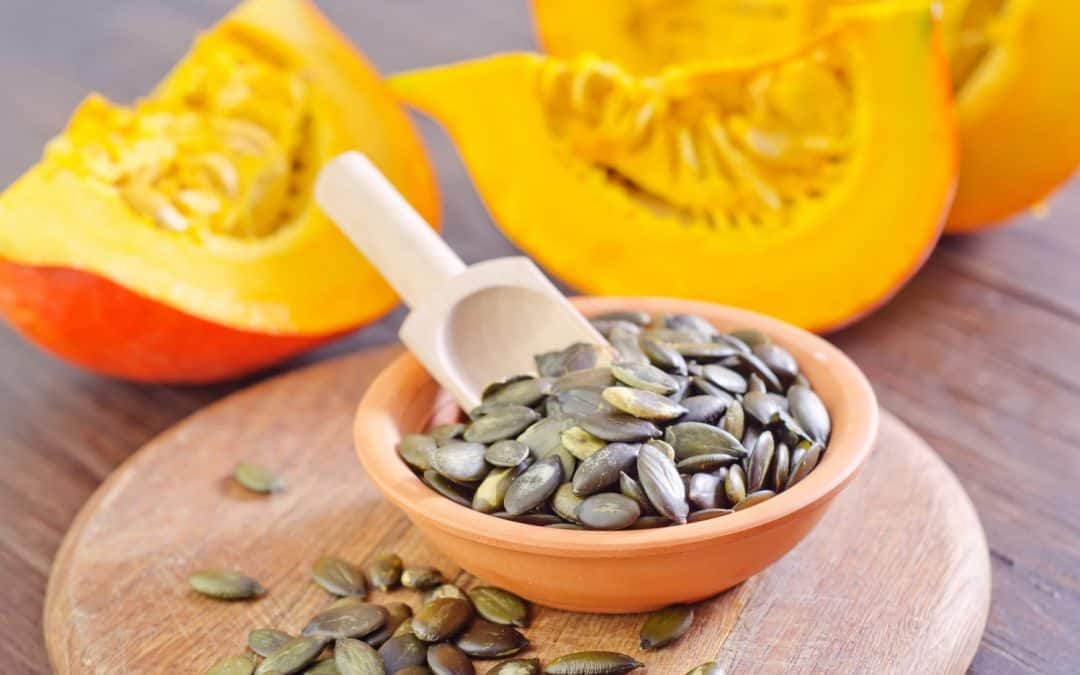A pumpkin seed, also known as a pepita, is the edible seed of a pumpkin or certain other cultivars of squash. Pumpkin seeds are a common ingredient in Mexican cuisine and are also roasted and served as a snack; they are nutrient-rich, with especially high content of protein, dietary fiber and numerous micronutrients.
These seeds were used in many forms of traditional medicine. They were prized for both their unique flavor and potent healing properties.
Indigenous groups in North America often used pumpkin seeds for their gut-healing effects as a treatment for parasitic infections and tapeworm symptoms.
Aztec groups used pumpkin seed as both a source of nutrition and a ritual offering for religious ceremonies.
On an Ayurvedic diet, pumpkin seeds are often considered alkalizing. They also are thought to nourish the blood, act as a natural diuretic, suppress appetite and improve reproductive health in men.
In Traditional Chinese Medicine, pumpkin seeds are used to help treat a variety of different conditions. They are believed to support lactation in mothers, promote healthy digestion, prevent parasitic infections and reduce stomach pain.
Promotes prostate and bladder health
Pumpkin seeds help improve male fertility and prostate health. Pumpkin seeds have been shown to improve symptoms of BPH, a condition that can cause difficulty urinating in men. Pumpkin seed oil may also help improve bladder function such as overactive bladder and correct urinary dysfunction.
Blood sugar levels
One of the top pumpkin seeds benefits is its ability to regulate blood sugar levels to prevent spikes and crashes. This is incredibly important because sustaining high levels of blood sugar can cause diabetes symptoms, such as increased thirst, fatigue, frequent urination and nausea. Pumpkin seed is rich in protein and fiber, both of which can slow the absorption of sugar in the bloodstream to promote better blood sugar control.
Properties
Type: Seed
Element: Earth
Color: Green
Taste: Sweet, Bitter
Natural Attributes: Oily, Light
Dosha impact: Kapha -, Pitta – , Vata 0
Tissue impact (Vipak): Decreasing
Thermal impact (Virya): Cooling
Digestive impact (Agni): Relatively easy to digest
Moves energy: Downwards
Channels (Srotas): opens
Strength (Bala): Improves strength and immunity
Sturdiness (Ojas): +
Mind (Manas): Sattvic
Feces: moves
Urine: Diuretic
Occasion: Spring
Nutrient: Protein, Dietary fiber
Chinese medicine syndromes: Liver Phlegm Stagnation, Spleen Qi Deficiency and Phlegm
Medicinal properties
- Reproductive and hormonal systems: Male tonic
- Kidney-Bladder: Diuretic
- Digestive system: Anthelmintic, Antimicrobial
Harmful for:

